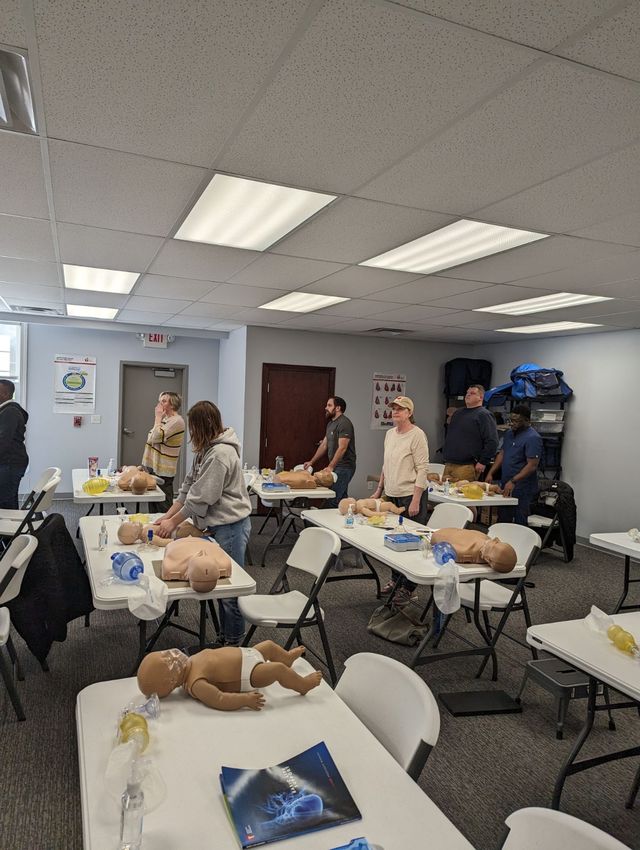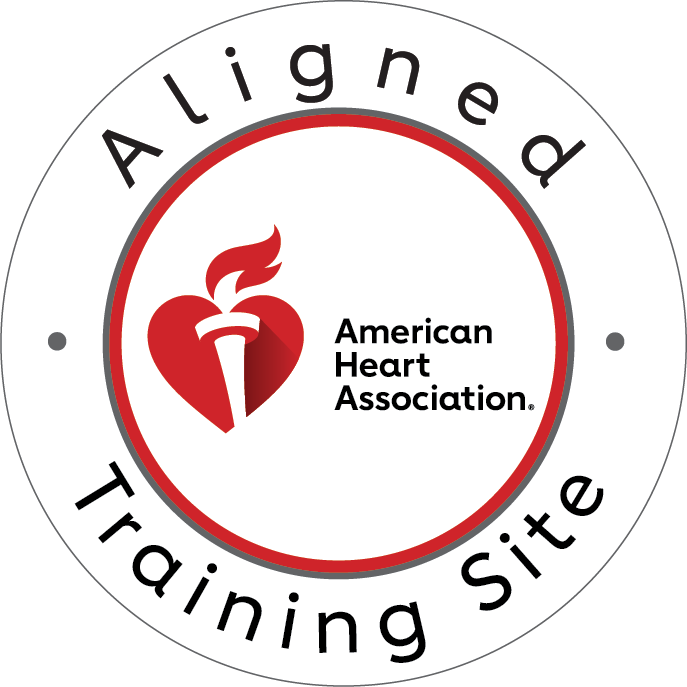I. Introduction
In the fast-paced world of healthcare, staying up-to-date with life-saving skills is not just a professional requirement—it’s a critical component of providing effective patient care. Basic Life Support (BLS) and Advanced Cardiovascular Life Support (ACLS) certifications are foundational qualifications for healthcare providers, equipping them with the knowledge and skills necessary to respond to life-threatening emergencies.
BLS focuses on the immediate response to cardiac and respiratory emergencies, teaching essential skills such as high-quality CPR and the use of an automated external defibrillator (AED). ACLS builds upon these basics, providing advanced techniques for managing cardiac arrest, acute coronary syndromes, stroke, and other cardiovascular emergencies.
II. The Need for Timely Renewal
Certification in BLS and ACLS is not a one-time achievement. These qualifications typically expire every two years, necessitating regular renewal to maintain active status. The expiration period is designed to ensure that healthcare providers consistently refresh their skills and stay informed about the latest guidelines and best practices in emergency cardiovascular care.
Allowing certifications to lapse can have serious consequences. Healthcare professionals may find themselves ineligible to work in certain settings or unable to perform critical job functions. More importantly, outdated skills could compromise patient safety and outcomes in emergency situations where every second counts.
Timely renewal of BLS and ACLS certifications offers numerous benefits:
- Skill retention and improvement
- Familiarity with updated protocols and equipment
- Increased confidence in emergency situations
- Compliance with employer requirements and professional standards
- Enhanced patient safety and care quality
By prioritizing the renewal of these vital certifications, healthcare providers demonstrate their commitment to excellence in patient care and their readiness to handle life-threatening emergencies effectively.
III. Impact on Patient Care
The timely renewal of BLS and ACLS certifications has a direct and significant impact on patient care. Up-to-date certifications ensure that healthcare providers are equipped with the latest knowledge and skills to respond effectively in critical situations.
Studies have shown that the quality of CPR and advanced life support measures directly correlates with patient survival rates. Healthcare professionals who regularly renew their certifications are more likely to perform high-quality CPR, use AEDs correctly, and implement advanced cardiovascular care techniques effectively.
Consider these real-world scenarios that highlight the importance of up-to-date skills:
- Cardiac Arrest Response: A nurse with recently renewed BLS certification recognizes the signs of sudden cardiac arrest in a patient and immediately initiates high-quality CPR, significantly improving the patient’s chances of survival.
- Acute Coronary Syndrome Management: An emergency room physician with current ACLS certification quickly identifies and treats a patient presenting with acute coronary syndrome, potentially preventing a more severe cardiac event.
- Post-Resuscitation Care: A team of healthcare providers with up-to-date ACLS training successfully resuscitates a patient and implements the latest post-cardiac arrest care protocols, leading to improved neurological outcomes.
These scenarios underscore how current certifications translate into better patient outcomes. Healthcare providers with renewed certifications are not only more confident in their abilities but also more likely to provide care that aligns with the most recent evidence-based guidelines.
IV. Renewal Process
Renewing BLS and ACLS certifications involves a straightforward process designed to refresh knowledge and skills. The renewal process typically includes:
- Reviewing updated course materials
- Completing a written exam
- Demonstrating practical skills in simulated scenarios
Healthcare providers can choose between online and in-person renewal options. Online renewal courses offer flexibility and convenience, allowing professionals to complete the theoretical portion at their own pace. However, many providers prefer in-person courses for hands-on practice and immediate feedback from instructors.
The time investment for renewal is relatively modest compared to the initial certification. Most BLS renewal courses can be completed in 3-4 hours, while ACLS renewal typically requires 6-8 hours. This time investment is crucial for maintaining life-saving skills and staying current with evolving medical practices.
V. Staying Current with Guidelines
One of the primary reasons for regular certification renewal is to ensure that healthcare providers are up-to-date with the latest guidelines and protocols in emergency cardiovascular care. The American Heart Association (AHA) and other international bodies regularly review and update their guidelines based on new research and evidence.
These updates can include changes to:
- CPR techniques and compression rates
- Medication protocols in advanced cardiac life support
- Post-resuscitation care strategies
- Use of new technologies in emergency care
By renewing certifications, healthcare professionals ensure they are practicing according to the most current, evidence-based standards. This not only improves patient outcomes but also reduces the risk of medical errors and legal liabilities.
VI. Employer Requirements and Professional Standards
Many healthcare employers have strict policies regarding BLS and ACLS certification renewal. These policies often require employees to maintain active certifications as a condition of employment. Failing to renew on time can lead to:
- Suspension from clinical duties
- Ineligibility for certain shifts or assignments
- Potential disciplinary action
Beyond employer requirements, professional organizations and licensing bodies also emphasize the importance of maintaining current certifications. For example, many state nursing boards require active BLS certification for license renewal.
Staying current with certifications is not just about meeting requirements; it’s a reflection of a healthcare professional’s commitment to providing the best possible care to patients.
VII. Choosing a Training Provider
When it’s time to renew BLS and ACLS certifications, selecting the right training provider is crucial. Factors to consider include:
- AHA certification: Ensure the provider is authorized by the American Heart Association
- Course format: Choose between online, in-person, or blended learning options
- Instructor qualifications: Look for experienced healthcare professionals as instructors
- Hands-on practice: Prioritize courses that offer ample opportunity for skills practice
- Scheduling flexibility: Consider providers that offer courses at convenient times
One excellent option for certification renewal is CPR Memphis. As an American Heart Association training site, CPR Memphis offers a range of courses including BLS for Healthcare Providers, ACLS, PALS, and CPR and First Aid. Their programs stand out for several reasons:
- Comprehensive course offerings: Whether you need initial certification or renewal, CPR Memphis has you covered.
- Stress-free learning environment: Their approach focuses on hands-on practice in a supportive atmosphere.
- Experienced instructors: Learn from qualified professionals who understand real-world applications of these skills.
- Flexible scheduling: With various course dates and times, finding a session that fits your schedule is easy.
By choosing a reputable provider like CPR Memphis, healthcare professionals can ensure they receive high-quality training that prepares them for real-world emergencies.
VIII. Conclusion
Timely renewal of BLS and ACLS certifications is not just a professional requirement—it’s a crucial element in providing high-quality patient care. By staying current with these certifications, healthcare providers ensure they are equipped with the latest knowledge and skills to respond effectively in life-threatening situations.
The impact of up-to-date certifications extends beyond individual competence. It contributes to better patient outcomes, improved team performance in emergencies, and overall enhancement of healthcare quality. Regular renewal also demonstrates a commitment to professional excellence and lifelong learning in the ever-evolving field of healthcare.
Call to Action:
Don’t wait until your certifications expire. Take proactive steps to renew your BLS and ACLS certifications today. For those in the Memphis area, CPR Memphis offers top-notch BLS renewal in Memphis and ACLS renewal in Memphis. Their stress-free, hands-on courses provide the perfect opportunity to refresh your skills and stay current with the latest guidelines.
Remember, your certifications are more than just credentials—they represent your readiness to save lives. By enrolling in a renewal course at CPR Memphis, you’re not only fulfilling a professional obligation but also enhancing your ability to provide the best possible care to your patients.
Whether you’re due for BLS renewal in Memphis or ACLS renewal in Memphis, CPR Memphis has the courses you need. Their flexible scheduling and experienced instructors make the renewal process smooth and valuable. Don’t compromise on your skills or your patients’ safety—enroll in a renewal course at CPR Memphis today and stay at the forefront of emergency cardiovascular care.
Your patients rely on your skills. Make sure those skills are up-to-date and ready when they’re needed most. Renew your BLS and ACLS with CPR Memphis—where quality training meets real-world readiness.





